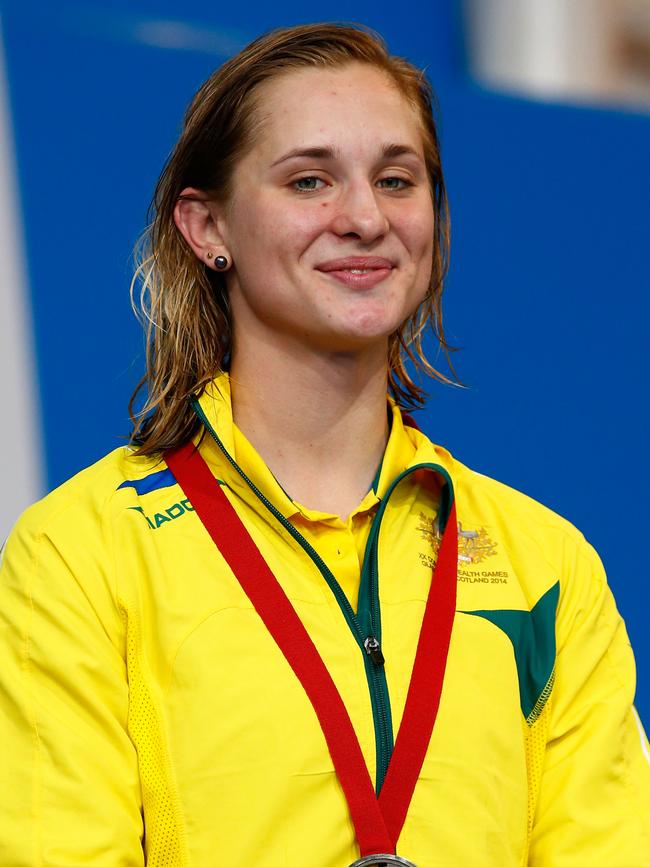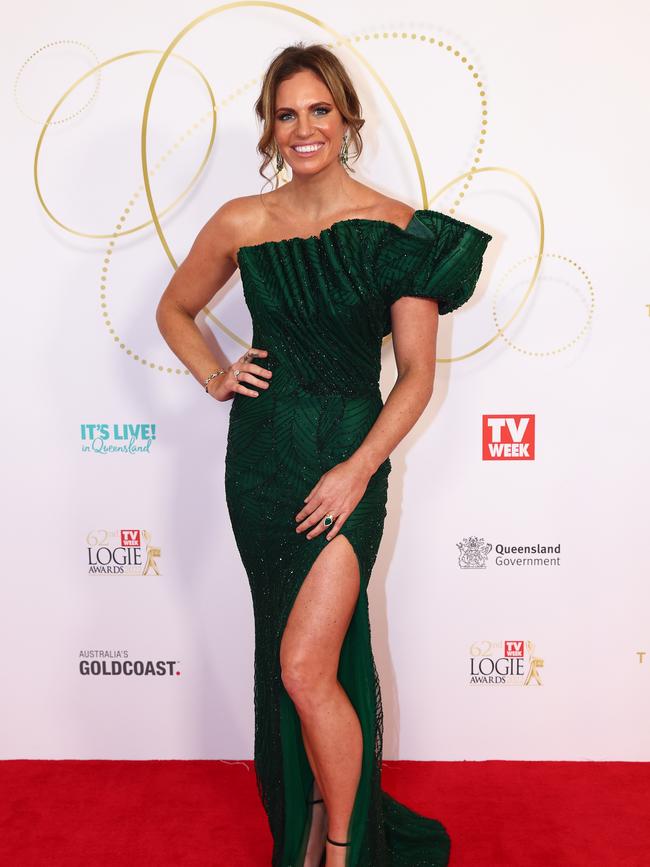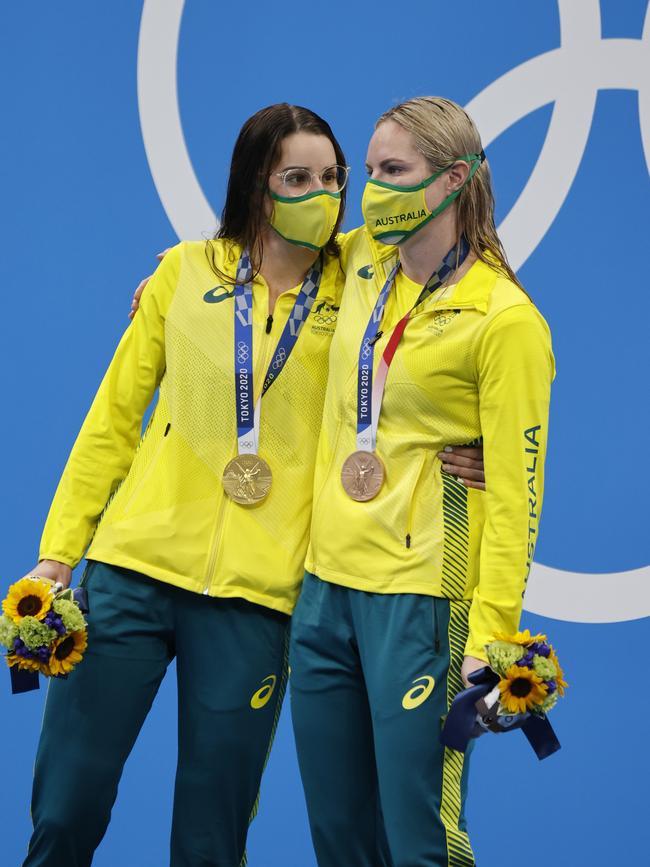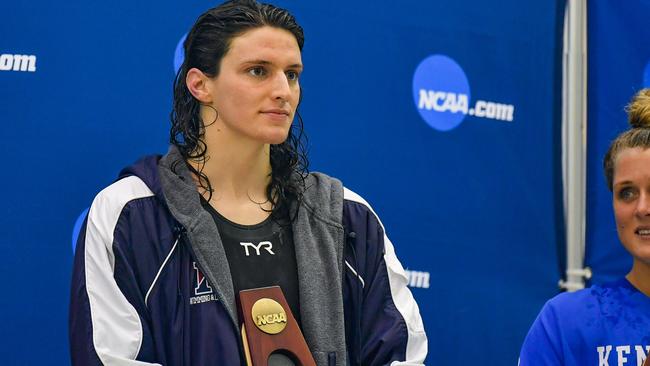‘Sets transgender rights back 100 years’: Swimming at war over bombshell decision
Aussie swimmers have come out swinging as heated debate rages over the sport’s controversial transgender bombshell.

Other Sports
Don't miss out on the headlines from Other Sports. Followed categories will be added to My News.
Swimming is at war over the bombshell decision to ban transgender athletes from competing in womens events.
Governing body FINA announced Monday morning it would become the first sport to set up an “open category”, to allow transgender athletes to compete in a separate class at the elite level.
The policy will, however, exclude many transgender athletes from women’s elite swimming.
The new policy on inclusivity was approved by the individual national member organisations in a vote during an extraordinary FINA congress and it received approval from 71.5 per cent of the countries.
The fine print in the 24-page policy includes several divisive details that have sparked heated debate across the world.
Australian Olympic champions Emily Seebohm and Cate Campbell are among the highest-profile athletes to come out publicly in support of the verdict.
However, that has since been followed up with a scathing response from former Aussie swimmer Maddie Groves.
Groves last year quit the Olympic trials in June, citing “misogynistic perverts in sport” as part of explosive allegations about a toxic culture within Australian swimming.


The 27-year-old took a swipe at the comments Campbell made when giving a speech at the congress before the votes were cast.
“It is my hope that young girls all around the world can continue to dream of becoming Olympic and World Champions in a female category prioritising the competitive cornerstone of fairness,” Campbell said.
“However, it is also my hope that a young gender-diverse child can walk into a swimming club and feel the same level of acceptance that a nine-year-old immigrant kid from Africa did all those years ago.”
Groves replied to Campbell on Twitter by posting: “So you ban them from competing with their peers? You’re okay with ostracising an already marginalised group? Real accepting.
“There are already gender diverse people in swimming and I’m guessing they’re not feeling very accepted (right now). Shame on everyone that supported this discriminatory and unscientific decision.”
Aussies stars stand up in support of decision, instant backlash follows verdict
Under the new rules, male competition will be open to all. But male-to-female transgender athletes and intersex athletes can only compete as female athletes in FINA competition if they can prove they have not experienced any element of male puberty.
Transgender activist Taylor Lianne Chandler, who claimed to have had an intimate relationship with Olympics swimming icon Michael Phelps, came out swinging against the policy on Monday morning.


Chandler, who has previously said she used testosterone blockers before having surgery to remove her male genitalia in her early 20s, posted on Twitter: “FINA just divided women into categories, not protecting all women! Trans rights are set back 100 years once again”.
However, Campbell and other FINA figures argue the policy helps support transgender inclusion in the sport.
“My role is to stand here today and tell trans people ‘we want you to be part of the broader swimming community’, but also to stand here and say ‘listen to the science’,” Campbell said in the speech.
“It pains me, that this part of my role, may injure, infuriate and potentially alienate people from an already marginalised trans community.
“Believe me, I have wrestled long and hard with myself, with what to say and do. I am aware that my actions and words, no matter what I say, will anger some people — whether they are from the trans-community or from the cisgender female community.
“However, I am asking everyone to take a breath, to absorb before reacting. Listen to the science and experts. Listen to the people who stand up here and tell you how difficult it has been to reconcile inclusion and fairness.
“That men and women are physiologically different cannot be disputed.”

Seebohm: Stars were scared to come forward
Emily Seebohm was one of a very small number of athletes to speak out in support of a FINA transgender policy shift in the days leading up to the vote.
The four-time Olympian said the new category ensures there is inclusivity and fairness for everyone.
“I’m just thankful that finally we have a decision,” she told The Today Show.
“We have a direction. We’re not saying no to transgender athletes, we are saying yes, we are going to make a category for you.”
She said swimmers found it hard to speak publicly about the divisive subject.
“I feel like it is such a hard topic. No-one wants to the first one to say anything,” she said.
“Because you are scared of cancel culture, right? That’s such a thing now. If you say one wrong thing, you’re done.
“I think it was a matter of once one Australian athlete said something, it was like let’s stand up. We all feel the same. It is just we were all too scared to be the first one to say anything.”
World swimming reacts in support of decision
Former English swimmer Sharron Davies also supported the “fairness” of the decision.
She tweeted: “Swimming will always welcome everyone but fairness is the cornerstone of sport.”
Nadine Dorries, Secretary of State for Sport in the UK, also supported the decision, saying it is “unacceptable” that trans-women compete against other women.

“If you have been through puberty you cannot reverse the size of your feet, the length of your femur, the density of your bone, your muscle strength, the size of your hands,” she said.
American swimmer Lia Thomas has become the face of the issue following her public declaration she hopes to swim at Olympic level.
After transitioning and undergoing required hormone therapy, she raced on the women’s team in University level competition this season.
Thomas previously competed for the University of Pennsylvania mens team from 2017-19.
FINA admits there is a massive hole in its new policy
Brent Nowicki, FINA’s CEO has admitted the organisation “recognises that certain individuals may not be able to compete in the category that best aligns with their legal gender alignment or gender identity.”
The potential for further exclusion was met with a scathing response from Anne Lieberman of Athlete Ally, a non-profit organisation that advocates for LGBTQ athletes, according to the Associated Press.

“This policy is deeply discriminatory, harmful and unscientific,” she said in a statement.
“It is not in line with (the IOC’s) framework on fairness, inclusion and non-discrimination on the basis of gender identity and sex variations.
There was also an immediate backlash from some sections of the swimming world.
In the debate that followed, Dr Christer Magnusson, a Swedish member of FINA’s medical committee, was among those who complained that the implication was that boys aged as young as 10 would have to decide to start transitioning.
The policy also drew criticism from FINA medical committee member David Gerrard from New Zealand.
“To ask or expect an 11, 12-year-old boy to make a decision that will affect the rest of his life is a big ask,” said Gerrard.
FINA’s panel of legal experts concluded that the policy of excluding most transgender swimmers would be legal.
However, there is already speculation the potential for discrimination within the policy guidelines will see the policy disputed through legal challenges in court rooms around the globe.
— with AFP
Originally published as ‘Sets transgender rights back 100 years’: Swimming at war over bombshell decision



